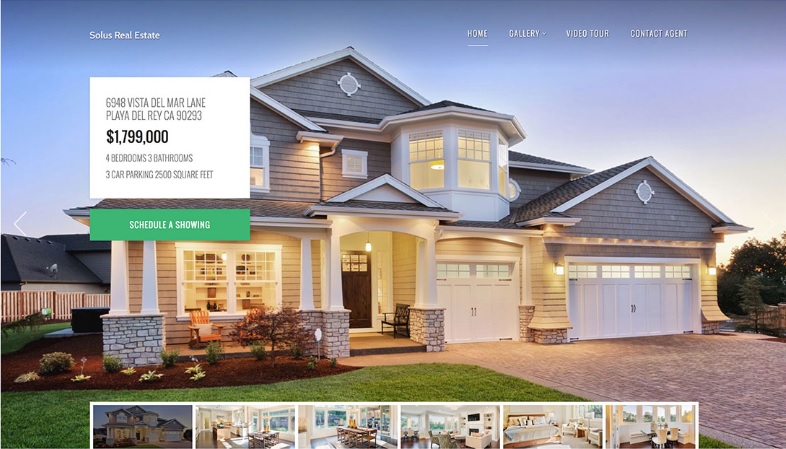Given how digitally enhanced our world is, it’s hard to imagine a business that isn’t online. Technological progress touches almost every sphere of the present life, including education, entertainment, healthcare, and traveling. Now, consumers prefer viewing goods online before purchasing. It helps them to choose the variant that suits their needs best, excluding discontent with an acquisition. And that’s the reason why the real estate business needs an online presence. There are many digital channels to choose from. Still, the website is considered the most effective leverage to an excellent online performance.
Building a website for a real estate company is not a simple yet smart decision. If the real estate business isn’t online, the consumers might consider it a mediocre, unreliable service. And you don’t want to alienate almost all your customers because of that simple mistake. A website is a representative number one of your business. And a multi-faceted, elaborated, and appealing platform can easily attract consumers, producing a favorable first impression. Besides, it’s the best way to expose your business and deliver additional valuable experience through the content.

When creating a custom real estate website, it’s crucial to maintain consistency in everything. The process takes time, effort, and concentration on multiple things. Let’s delve deeper:
Choose the platform
Before you start, you need to decide which platform to use to build the website. There are many ready-to-use platforms and cms systems available. But it’s crucial to understand that your success partially depends on the software employed. Thus, consider only experienced and tested one that proved their efficiency. Using WordPress, you can create an excellent mobile-ready, user-friendly website. It is the easiest and the most flexible content management system that is powerful enough for building both functional and beautiful websites.
Content
The first thing to do is to think out the content. As a real estate business, your task is to inform customers about the properties available for sale. In other words, you need to place detailed, informative property listings on your real estate website. Enable the platform with high-quality authentic visuals, excluding stock images or videos. Original photos of properties urge consumers to trust you and encourage them to buy from you without negative anticipation of possible fraud. Some realtors go even further and suggest impressive virtual home tours. But it’s crucial to optimize all on-site visual content to avoid low loading speed and bugs.
Apart from property listings, you can dilute your content with some additional information. You can start a blog and provide your customers with valuable insights and educational materials related to your niche.
Since people are likely to rely on other people’s experiences, they need social proof. Then, allow users to leave reviews about your service and others to view them effortlessly. Authentic reviews increase credibility, which plays a significant role in the decision-making process.
Design
Visual design is aimed at bringing all website pieces together. Make sure you have one color palette and one design style. Don’t overload the platform with unnecessary design elements that can deteriorate the user experience. Instead, establish a distinct brand identity. Design a logo that reflects your business essence. Introduce yourself on the About page and share your brand’s values. Thus, customers get to know who you are and what you stand for. And it’s a crucial step for starting building relationships with them. If consumers are satisfied with your brand philosophy, they will probably search for ways of contacting you. And for real estate business websites, having a clear and transparent design form is beneficial. Well-structured design forms help customers to connect with you effortlessly or leave you a request in just a few minutes. Design forms should include only relevant queries and be simple and easy to fill in.
Functionality
Having an appealing website is good, but incorporating both design and function is paramount. Make sure your website works seamlessly. When users arrive at your website, they don’t want to waste their time searching through numerous web pages. Make the navigation clear and straightforward, design it according to a specified users’ requests: details of a property, the region or country, and the gradation of a price. It contributes to the increase of user experience and improves the overall site’s usability. Besides, you can apply a live chat widget that will support your visitors when on the site.
Conclusion
Employing a vivid online presence for the real estate business is critical. It becomes easier for potential customers to find, watch, and buy properties. And with those website practices, the real estate business can reach impressive results: turn potential customers into loyal home buyers, increase brand awareness, and gain profit.